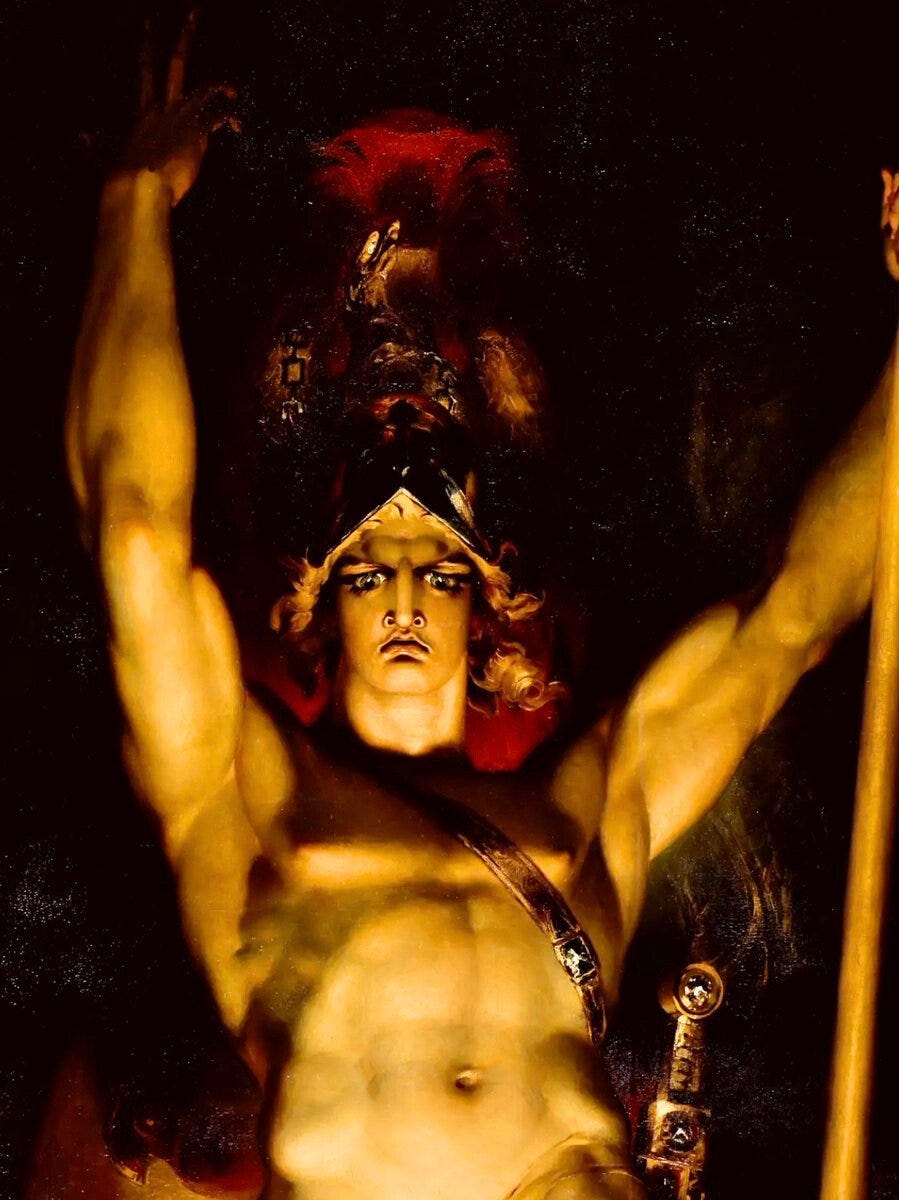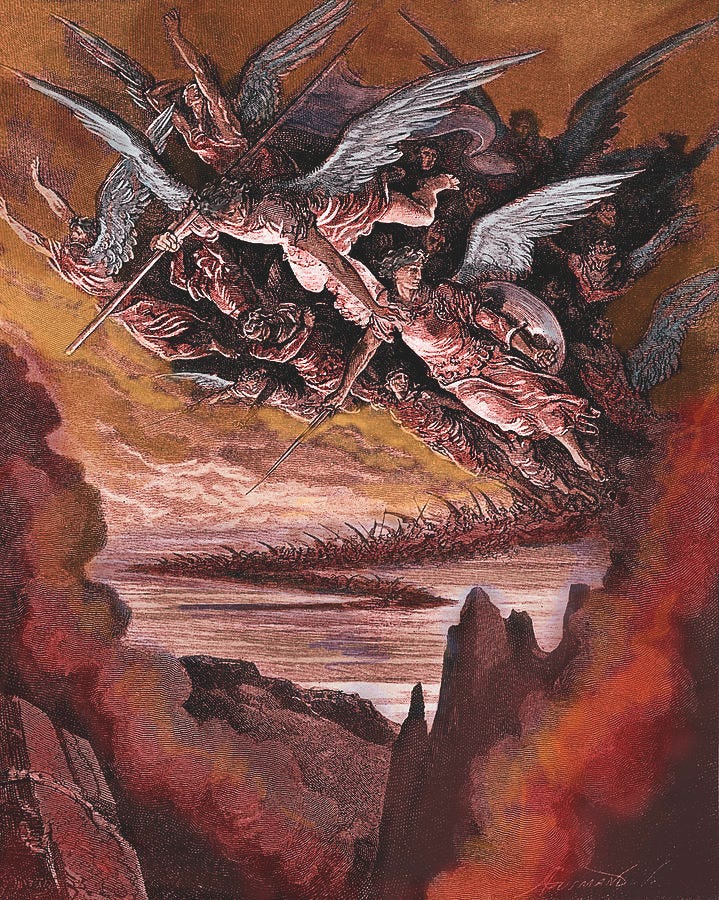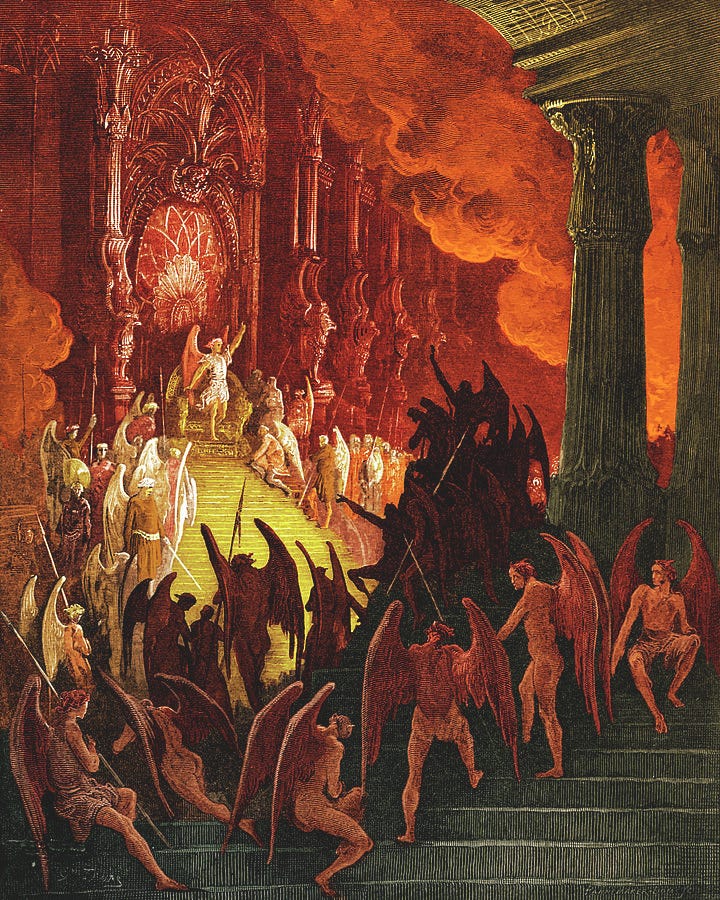Paradise Lost, Satan, and the Root of all Evil
Milton’s Theodicy and its Timeless Lessons on Pride and Humility
John Milton’s Paradise Lost features one of the greatest portrayals of evil ever existed. The poem is a theodicy, Milton’s attempt to “justify the ways of God to men.” He dramatizes the Biblical Fall of Man to explain why a Good God allows a world of evil, suffering, and injustice to reign free.
This poem has become infamously controversial for its romanticized portrayal of Satan, and some critics have gone so far as to claim Milton was on the Devil’s side without knowing it.
Paradoxically, however, it’s specifically because Satan is so appealing to the reader that proves Milton is a genius. He understood evil like few poets ever have, and reveals that behind the glamour and wonder of Satan’s “heroism,” is a rotting decay that shows how corrupting and damning evil truly is.
Here then, is Milton’s take on the cosmic birth of evil, why it’s so enticing to mankind, and the only true defense against its corrupting influence.
Reminder:
I offer one on one coaching for men, focusing on faith, fitness, and the Great Books. More info here.
Additionally, if you’d like to support my mission of restoring Truth, Beauty, and Goodness to the West, subscribe below!
Failed Rebellion
The first two chapters of Paradise Lost take place in Hell, where Satan and his demons mourn in despair over their recently failed rebellion. They lament that God is far more powerful than they ever conceived, and now admit that he’s master of the universe.
In the words of one demon:
“I now of force believe [God is] Almighty, since no less
Than such could have o’erpowered such force as ours”
Already we get a glimpse into the psychology of evil. The demonic host admits God is ruler, but does so on the basis of his power. Notice how the demons never acknowledge his goodness or justice. Milton is teaching us that the psychology of Hell is one where Might makes right — a world that is “beyond Good and Evil.”
Though the demons despair over their loss of Heaven, Satan still proclaims the new cry of the underworld:
“Better to reign in Hell than serve in Heav’n!”
This is his pride speaking — the cosmic birth of evil in the universe. For Milton, Satan rebelled out of jealousy of Christ, and preferred an eternity of damnation rather than bending the knee. Already the stakes are high, but the evils of Hell prove even more complex and sinister in the next chapter.
Council of Hell
Satan’s first move in Hell is to summon a war council of his advisors.
The demons propose a range of responses to their defeat. Some urge another assault, others recommend peace for the sake of survival, and still others suggest scouring Hell’s depths in search of profit.
Here Milton is further increasing the complexities of evil — namely, it has no identity. The demons are not just searching for a plan of action, but they are trying to understand their life’s purpose. Before the rebellion, their life was contingent upon serving and loving God. Now, their plans only involve some form of corruption or revenge against their heavenly father. Milton’s lesson for us is Augustinian: evil cannot exist by itself. It is but a corruption of the Good, and only exists in relation to God…
Finally, the war council agrees on a plan. Satan himself will leave Hell, in search of a rumored new cosmos, where God has created man. They agree the best revenge against God is to corrupt mankind, and this becomes the identity evil — permanent enemy to God/The Good.
Up to this point, Milton’s portrait of evil has been grandiose yet familiar. But as Satan departs, the poem takes a startling turn. At the gates of Hell he finds two wicked monsters that are strange and foreign to him. It turns out they’re his own grotesque offspring, birthed from his rebellion, and their appearance will reveal the truest roots of evil itself.





